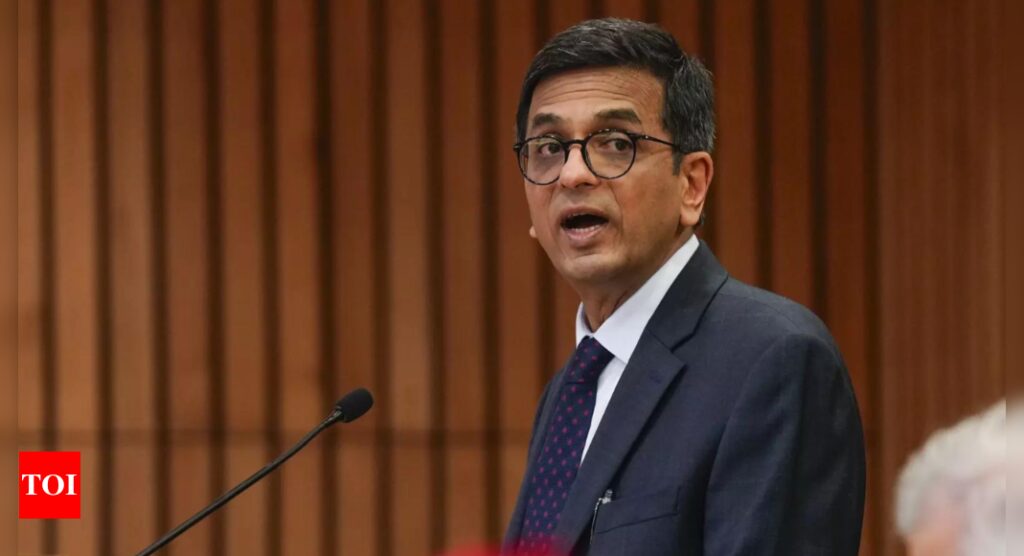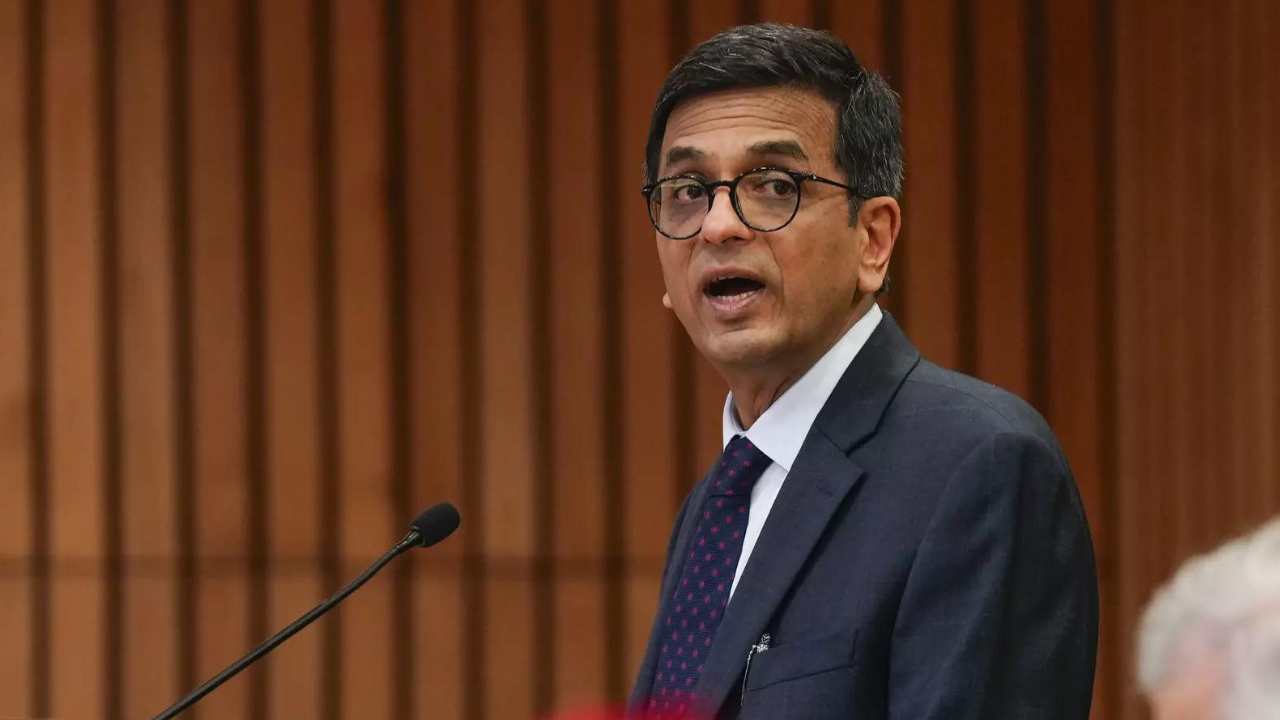[ad_1]
Delivering the Justice V M Tarkunde Memorial lecture on the topic – ‘Upholding Civil Liberties in the Digital Age: Privacy, Surveillance and Free Speech’, he said, “There is a flip side to adopting privately owned platforms as the medium for dissent, activism, and expression of free speech. With corporations wielding such immense power, there is an immense amount of trust placed on them to act as the arbiters of acceptable and unacceptable speech – a role that was earlier played by the state itself. “Warning of a disastrous impact on society, public and countries, he quoted a UN report that detailed how the Myanmar military used social media as a tool for ethnic cleansing.
“Unlike state actors, who are held accountable to the Constitution and the electorate, social media platforms are relatively unregulated. This is another novel challenge that digital liberties activists have to find unique solutions to,” he said.
CJI Chandrachud calls for greater inclusivity and female representation in legal profession
Referring to another facet of social media that drowns facts with distortions, Justice Chandrachud said, “With the advent of troll armies and organised disinformation campaigns across different social media platforms, the fear is that there is an overwhelming barrage of speech that distorts the truth.” The CJI dealt with another argument that information technology had been of great assistance to the state machinery in reach-ing the welfare scheme benefits to disadvantaged sections of the society and said use of information technology has given rise to privacy breach concerns.
He said, “I would like to dispel the claim that economic status and access to welfare entitlements are more important than civil and political rights for socio-economically disadvantaged communities. All individuals, regardless of their socio-economic status are deeply impacted by violations of the right to privacy, autonomy, and intimacy….. In the realm of Artificial Intelligence, we find that the unchecked algorithms used by tech giants compound privacy concerns.”
Searching for a protected space for privacy and civil liberties in the digital era, the CJI flagged two issues – “First, the unprecedented proliferation of disinformation and hate speech on the internet has offered a serious challenge to the traditional ways of understanding free speech in a democracy.”
[ad_2]
Source link











More Stories
Congress replaces Kamal Nath, names an OBC as Madhya Pradesh chief | India News
Fire breaks out in ITBP camp in Srinagar; none hurt | India News
Parliament Security: Co-villagers give clean chit to Lalit Jha, parents to move court | India News